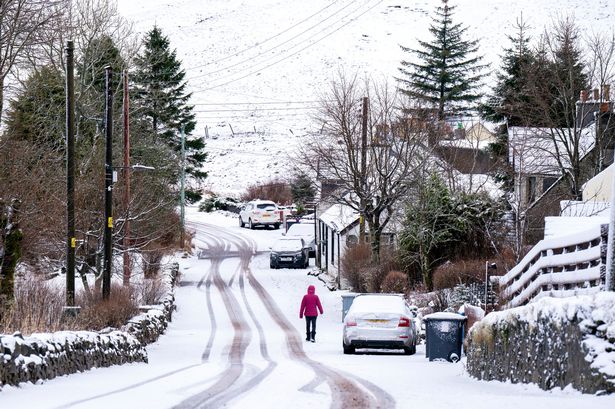The United Kingdom is bracing for a significant winter weather event, with temperatures plummeting to -10°C in certain areas and widespread snowfall predicted across much of the country. This frigid blast of arctic air is expected to bring disruptive conditions, impacting travel, daily routines, and potentially posing risks to vulnerable populations. While some regions may experience lighter dustings, others are forecast to receive up to nine inches of snow, creating a winter wonderland scene but also presenting challenges for residents and infrastructure. The Met Office has issued warnings for snow and ice, urging caution and preparedness as the cold snap takes hold. This event highlights the variability of British winters and the importance of being equipped for such weather extremes.
The anticipated snowfall varies significantly across the UK. While some areas, particularly in the south, may see only light flurries or a dusting, other regions, especially in the north and Scotland, are predicted to receive much heavier accumulations, potentially reaching up to nine inches. This disparity in snowfall amounts is due to the complex interplay of atmospheric conditions, including the trajectory of the cold air mass, the availability of moisture, and local topographical features. The heaviest snowfall is expected in areas of higher elevation, where the colder temperatures allow for more efficient snow formation. Lower-lying areas, while still experiencing freezing temperatures, may see a mix of snow and rain, or primarily rain, depending on the specific local conditions. This variability underscores the importance of consulting localized weather forecasts for accurate predictions in specific areas.
The plummeting temperatures, reaching as low as -10°C in some parts of the country, pose significant challenges beyond the snowfall itself. The combination of sub-zero temperatures and snow creates conditions conducive to the formation of ice, further exacerbating travel difficulties and increasing the risk of slips and falls. The extreme cold also poses health risks, particularly for vulnerable populations such as the elderly, the very young, and those with pre-existing health conditions. Hypothermia and frostbite become real concerns in such conditions, necessitating precautions such as adequate layering of clothing, limiting time spent outdoors, and ensuring homes are adequately heated. The cold weather can also put a strain on infrastructure, potentially leading to frozen pipes and power outages, further complicating the situation.
The impact of this widespread snow and ice event extends beyond personal discomfort and potential health risks. Travel disruptions are anticipated across various modes of transportation. Roads may become treacherous or impassable due to snow and ice accumulation, leading to delays and cancellations. Public transportation services, including buses and trains, may also experience disruptions due to weather-related delays or safety concerns. Air travel could be affected as well, with potential flight delays or cancellations due to de-icing operations, runway closures, or poor visibility. These travel disruptions can have significant economic consequences, impacting businesses, supply chains, and individual commutes.
Preparing for such a significant weather event is crucial to mitigating its potential impacts. The Met Office and other relevant authorities have issued warnings and guidance to help individuals and communities prepare. This includes recommendations such as stocking up on essential supplies, ensuring adequate heating in homes, checking on vulnerable neighbors, and avoiding unnecessary travel during the worst of the weather. For those who must travel, it’s essential to check road conditions, allow extra time for journeys, and ensure vehicles are properly equipped for winter driving, including having winter tires, an ice scraper, and a shovel. Staying informed about weather updates and heeding official advice is paramount in navigating these challenging conditions safely.
The widespread snowfall and frigid temperatures impacting the UK serve as a stark reminder of the unpredictable nature of winter weather and the importance of preparedness. While the snowfall can create picturesque scenes, it also presents significant challenges that require proactive measures to ensure safety and minimize disruption. By heeding official warnings, taking appropriate precautions, and staying informed about evolving weather conditions, individuals and communities can navigate this winter weather event and minimize its potential impacts. The focus remains on ensuring the safety and well-being of everyone during this period of extreme cold and snowfall.














